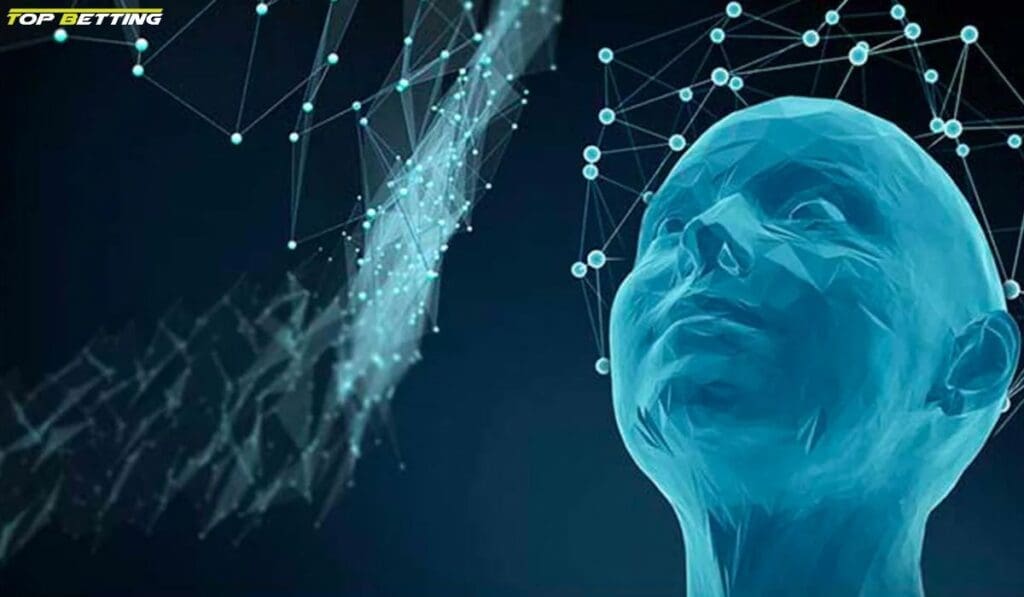
AI is being introduced in Lok Sabha | Through Deep Fakes
AI has the potential to significantly influence the outcomes of the 2024 polls, similar to how social media influenced the 2014 polls.
In January, a meeting convened by a faction of the ruling DMK in Tamil Nadu witnessed an unexpected presence of M Karunanidhi, a prominent figure from the Dravidian region. Karunanidhi made a notable appearance on a large screen, donning his distinctive black spectacles, white shirt, and yellow shawl. The present leadership in the state, led by his son M K Stalin, was commended by Karunanidhi. Karunanidhi’s demise occurred in the year 2018.
In the context of the upcoming Lok Sabha elections, political parties have adopted a novel strategy by utilizing social media platforms like Facebook, Instagram, YouTube, and X to disseminate content generated by artificial intelligence (AI). This content serves the dual purpose of endorsing their own candidates, mocking adversaries, and delivering tailored messages to voters.
It is widely anticipated by experts that artificial intelligence (AI) would be extensively employed during the upcoming election, perhaps exerting a significant influence similar to that of social media in the 2014 polls. However, the extent to which this disruptive technology shapes voters’ perspectives is yet to be determined.
Since the beginning of this year, political parties, including the BJP and Congress, have published content edited by AI on at least four occasions on their official Instagram profiles. The themes of this modified media – called deepfakes in common language – are similar: portray leaders of opposing parties in unfavorable light.
On March 16, the BJP released a deep fake of Rahul Gandhi on Instagram with the Congress leader allegedly expressing the words: “I don’t do anything.”
The BJP recently published another edited film in which AI was used to replicate the voices of Opposition leaders Mamata Banerjee, Arvind Kejriwal and Akhilesh Yadav, among others.
Earlier, the Congress’s official Instagram handle tweeted a deepfake with Prime Minister Narendra Modi’s visage superimposed onto that of Justh, the singer of a popular song titled Chor (thief). The voices were adjusted by AI to closely approximate Modi’s voice. Most recently, the Congress handle published an edited picture of PM Modi facing a poster of a woman wrestler in tears.
In February, the official feed of the AIADMK, Tamil Nadu’s biggest Opposition party, tweeted an audio message by party veteran J Jayalalithaa in which she urged supporters to support its current leader Edappadi Palaniswami. Jayalalithaa died in 2016.
Ahead of the Assembly elections in Telangana last year, the official X handle of the Telangana Congress uploaded a deepfake of BRS leader KT Rama Rao reportedly urging the public to vote against his party.
Voice cloning and a personalized touch
Voice clones of candidates, generated by AI, are likely to be utilized by political parties for tailored messaging to woo voters.
“We are all aware of call blasts containing a pre-recorded message from candidates urging you to vote for them. But using AI, you can now also make the candidate address you by name at the beginning of the call. That adds a new dimension to the level of customization that a candidate may offer during their outreach campaign,” said a politician who is contesting this year’s election.
Parties have gone out to political consultancy corporations to examine how they may achieve this.
Divyendra Singh Jadoun leads one such company. Founder of the Ajmer-based AI services company, Polymath Solution, Jadoun, who also runs a popular Instagram handle called The Indian Deepfaker, told The Indian Express, “A number of political parties are interested in exploring options around personalised conversational AI where a candidate’s voice can be recreated through AI with the added level of personalisation being added by these candidates seemingly addressing the voters by their individual names,” Jadoun told this paper. “We are in touch with multiple parties who are exploring this and some of this should start getting deployed towards the first week of April.”
A detailed questionnaire that The Indian Express sent to the Election Commission of India, asking whether it had taken cognisance of parties sharing deepfakes through their official handles and if it was going to issue a directive to place guardrails around the use of AI in campaigning, remained unanswered.

The model code of conduct, which has kicked in with the publication of the poll dates, is quiet on political parties using AI-generated content for campaigning.
Experts have raised warning regarding the potential use of AI-generated information to affect voter perception, and have urged on the Election Commission to step up its efforts to cope with the use of this technology.
“A few hours are enough for such things to go viral and by the time you detect them, the damage would have already been done. Platforms do not have real-time monitoring tools, and until that happens, it will be very difficult to limit such content,” Anil Verma, head of the Association for Democratic Reforms (ADR) and National Election Watch, told to media
“Companies have spoken of introducing technologies like labelling and watermarking AI-generated videos. But given the scale of our population, and the political parties utilizing WhatsApp to spread this kind of stuff, it will be very difficult,” he added.

The dilemma has also led tech businesses — the biggest platforms to disseminate AI-generated content – to hunt for patchwork solutions. In a recent blog post, Meta announced that it will compel marketers internationally to disclose when they utilize AI or digital tools to develop or edit a political or social issue ad. The company stated it was building tools to categorize AI-generated photos from Google, OpenAI, Microsoft, Adobe, Midjourney, and Shutterstock that users share to Facebook, Instagram and Threads.
Google recently declared it would limit the responses of its AI chatbot Gemini on issues connected to elections. YouTube said producers would have to declare to users when realistic-looking content is generated using AI techniques.












